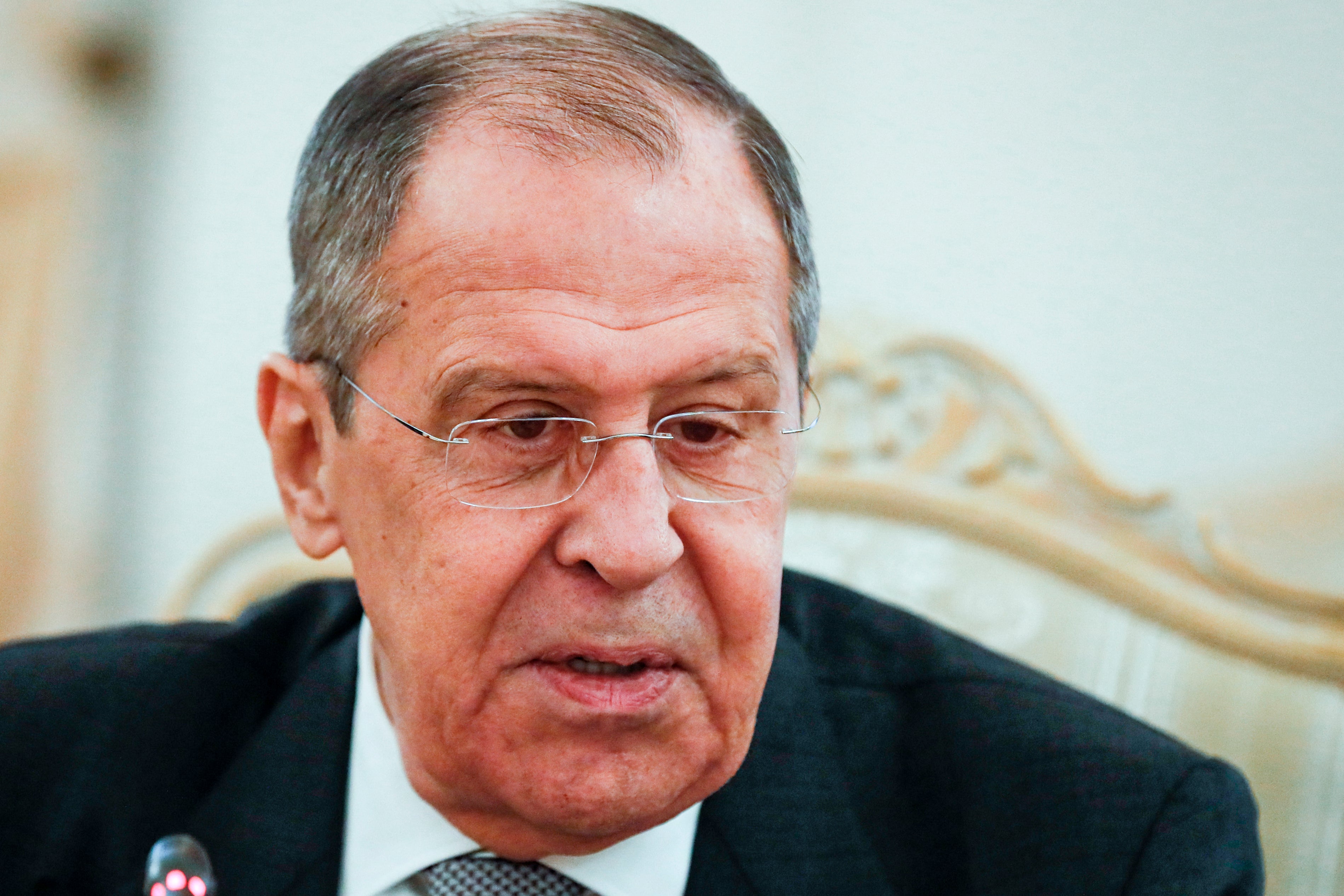Russia rejects Ukraine's push to revise 2015 peace deal
Russia’s foreign minister has sternly warned Ukrainian officials that Moscow would not accept their push to revise a peace deal for eastern Ukraine

Russia s foreign minister sternly warned Ukrainian officials Wednesday that Moscow would not accept their push to revise a peace deal for eastern Ukraine
Foreign Minister Sergey Lavrov s comments followed Ukrainian President Volodymyr Zelenskyy calling Tuesday for a modification of the 2015 agreement and inviting other nations to help mediate the stalled talks on a political settlement of the conflict in Ukraine's east.
Fighting between Ukrainian forces and Russia-backed separatists erupted in Ukraine’s eastern industrial heartland, called Donbas, shortly after Moscow’s 2014 annexation of Ukraine’s Crimean Peninsula. More than 14,000 people have been killed during the seven-year conflict.
In recent weeks, increasing violations of a shaky cease-fire in eastern Ukraine a Russian troop buildup across the border drew Ukrainian and Western concerns about the potential for large-scale hostilities. Tensions eased last week after Moscow announced a pullback of its forces following massive drills.
The 2015 deal, which was brokered by France and Germany, marked a diplomatic coup for Russia, obliging Ukraine to offer broad autonomy to the separatist regions and amnesty for the rebels. It also stipulated that Ukraine would regain full control of its border with Russia in the rebel-held territories only after the election of local leaders and legislatures, the provisions resented by many Ukrainians as a betrayal of national interests.
Ukraine and the West have accused Russia of backing the separatist rebels in the east with troops and weapons, claims Moscow has denied. The Kremlin has insisted that Russia isn't a party to what it described as an internal Ukrainian conflict.
Speaking in an interview with a Russian state TV host, Lavrov criticized the West for turning a blind eye to the failure of Ukrainian authorities to meet their obligations under the 2015 document that was signed in the Belarusian capital, Minsk, by then-Ukrainian President Petro Poroshenko.
“The West either can't or doesn't want to encourage compliance with the Minsk agreement,” he said.
Lavrov categorically rejected the push by Ukrainian officials to reverse the sequence of steps stipulated by the Minsk deal and to make reclaiming control of the border with Russia in the rebel-controlled regions the first step.
“Control of the border is the very last move that comes only after those territories get a special status fixed in the Ukrainian Constitution and hold free elections acknowledged as such by the Organization for Security and Cooperation in Europe,” the Russian minister said. "I believe that we mustn’t let Mr. Zelenskyy and his team get off the hook, even though they are trying hard to wriggle out.”
Zelenskyy has pushed for a meeting with Putin, but the Russian leader responded last week that Ukrainian authorities need to speak to the rebels to settle the conflict in Donbas. He added that if the Ukrainian president wants to discuss the normalization of ties with Russia, he's welcome to come to Moscow.